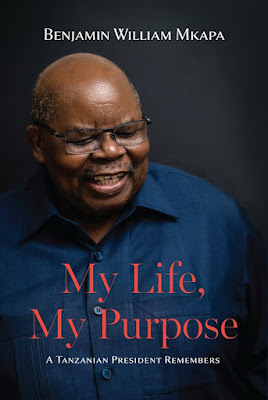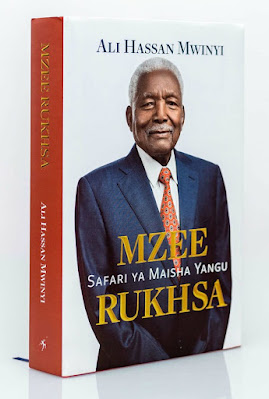As a book-reader have you ever read books written by one of our own? You will be shocked by what you can find about a person through the books they have written.
1. I can, I must I will by Dr Reginald Mengi
This is a powerful account of the story of Africa told through the life of one of its contemporary shapers, Reginald Abraham Mengi of Tanzania. I Can, I Must, I Will comes at a time when Africa is casting a new vision that is guided largely by the power of entrepreneurship. There could be no better-guiding light for that vision than the spirit of courage, determination, and dedication to self-improvement that is so vividly represented by the life and work recounted in this book. Like Africa itself, Dr. Mengi is a person of humble origins. But his character and personality were shaped by a family history that imbued in him a sense of self-confidence and commitment to setting goals and seeking to accomplish them. In addition to these personal values, the book also reveals a self-driven person with an unflinching commitment to duty. Nothing seems to stand in the way of Dr. Mengi in his determination to reaffirm his self-worth through the pursuit of excellence.
CLICK HERE TO DOWNLOAD A FREE PDF
2. My Life, My Purpose. A Tanzanian President Remembers by Benjamin William Mkapa
His Excellency Benjamin Mkapa was Tanzanian's third president, elected under the first multi-party general election in Tanzania. His memoirs range from his childhood, his time as president, and his continuing post-retirement involvement on the international stage of development and peace mediation. This book will appeal to readers interested in an African's personal experiences of colonialism in East Africa; the struggle for independence by the liberation movements of several African countries; how the war helped unify the diverse citizens of a young nation; fostering nationalism and addressing ethnic and religious differences; the economic and social aspects of the transition to socialism and then to a free market environment; the political transition from a single party state to multi-partyism; and relations with international organizations and development partners. During the ten years of his presidency, he undertook substantial reforms, such as the privatization of national assets, securing international debt relief, and restructuring the public service. His Excellency writes of his childhood, his political maturation, the evolution of the State and politics in Tanzania, as well as some political upheavals in neighboring countries. These memoirs are enriched by his views on leadership and advice for aspiring leaders. After Julius Nyerere, few books have been written by senior Tanzanian leaders on the evolution of Tanzania; in fact, more literature has been produced by foreigners than Tanzanians, thus H.E. Mkapa's memoirs are a milestone. This book will appeal to aspiring leaders; students of development, international politics, and diplomacy; those working for development partners; historians, and those who want to know more about their Tanzanian heritage.
3. Mzee Rukhsa: Safari ya Maisha Yangu by Ali Hassan Mwinyi
This autobiography follows the biography of Mwalimu Julius Nyerere and the autobiography of President Benjamin Mkapa and fills the gap that was left in the memory of the first three phases of the leadership of independent Tanzania.
These books help keep history straight; they close some of the gaps in understanding various historical facts. The book is called "Mzee Rukhsa" to reflect the leadership of President Mwinyi who liked to use a simple word like this to indicate the great things he was doing to open the borders of economy and politics in Tanzania.
One of the things that is put right here, is that it is not true that President Mwinyi defied Mwalimu by introducing reforms in the economy. With the great respect he had for Mwalimu, even though he saw himself as an ant in front of him who compared him to Mount Kilimanjaro, he could not do that. In addition, President Mwinyi led the government for the first five years without wearing the hat of the party chairman (CCM). Mwalimu wouldn't want it, it wouldn't be possible.
Mwalimu tried every method but Tanzania's economy continued to decline. There was no foreign currency even for the most basic things. Mwalimu gave Mwinyi permission to try other knowledge. Later there were things that the Master did not like, and he rebuked them in public. But basically, he accepted the argument of reform, including opening the economy to the private sector inside and outside the country.
Likewise in politics. Mwalimu saw the importance of reforms in politics, including the changes reflected in the "Zanzibar Decisions". The book explains what happened, and that the original idea was Mwalimu Nyerere's, although later there were things he did not like.
The book also talks about the many challenges of Ali Hassan Mwinyi's presidency, including the structure of the coalition; strikes; nepotism and hatred between businessmen; religious conflicts, and so on. All that and more are well laid out in a simple language that everyone can understand.
President Mwinyi has taken a long time to complete his autobiography, but its value was worth the wait.




0 Comments